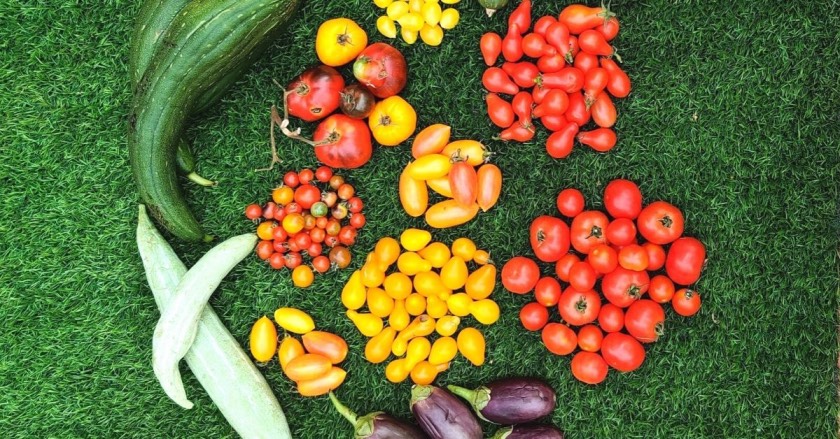A few years after Darsha Sai Leela moved to Hyderabad from Ulpara village in Telangana, she was diagnosed with a thyroid ailment. Doctors recommended she start eating healthier food, and told her that consuming vegetables laden with harmful pesticides could be a contributing factor to her health issues.
This, Darsha says, was an eye-opener for her. “The vegetables we consume also harm children and can impact an entire generation. So I decided I would try to grow them at home instead,” she tells The Better India.
Darsha had always been fond of urban gardening, and earlier used to grow marigold and other flower varieties on her terrace. The 45-year-old says her motivation to switch to organic farming increased after she came across an advertisement from the Telangana Government about developing agriculture in the urban areas through organic terrace gardening.
“I visited the horticulture department and opted for a subscription package that offered subsidies on seeds, soil and equipment,” Darsha says.

She began her journey with growing leafy vegetables in 2013, and watched YouTube videos, read magazines and attended multiple workshops and seminars on terrace gardening.
Today, she grows over 190 vegetables on her 2,000 sq-ft terrace garden using 800 pots. These varieties come from the USA, Turkey, China, Ethiopia, Italy and Mexico. Her YouTube channel Saileela Vlogs, which she launched in 2020 to share her expertise on growing organic vegetables, has over 1 lakh subscribers.
For a clean and healthy life
“I grow 190 types of vegetables, including 65 varieties of tomatoes, 50 types of crotons, ten varieties of bottle gourd and okra each and 15 kinds of brinjal,” she says.
She adds, “I also grow multiple varieties of pumpkin, beans, banana tree, carrot, chillies and medicinal plants.”
“I grow tomato varieties from the USA, Turkey, China and India. Brinjals are from Ethiopia, Italy, Mexico and the USA, while most of the vegetables are an heirloom variety, which comes from Kerala, USA, India and Italy,” she explains.
Darsha says that many of her vegetables are indigenous varieties, rare and developed over the years. She also grows 50 types of fruits in her green treasure.
Part of the produce is kept aside for the family, and the rest is shared with neighbours. She also distributes seeds to encourage others to grow organic food.
She says that her 2,000 sq-ft roof garden is equally divided in two parts. “A green net covers the first half, and the remaining 1,000 sq-ft is an open terrace with direct sunlight. The location of placing the plants depends on their requirement,” she adds.
Watch 16 inch Okra grown by Darsha below.
Speaking about the importance of organic gardening, Darsha claims, “The vitamin and mineral content in organic foods is higher than those in conventionally produced foods. This is because of the nutrients and trace minerals found in nurtured and chemical-free soil.”
Speaking of the significance of urban gardening, Varsha says, “The primary theory in organic gardening is that “nature knows best.” As an organic gardener, one starts from the soil up by feeding the source, and not the plant, to increase the fertility of their lawn or garden. By rejecting the use of harmful chemical pesticides that put plants and humans at health risk, organic gardeners nurture the soil using natural techniques best suited for the environment.”
For new entrants in organic gardening, Darsha suggests they use a mix of 30% coco peat, 30% cow dung and 40% soil. “Organic pesticides should be sprayed every 15 days and it must be ensured that plants get adequate sunlight,” she says.
Darsha notes that organic farming is a solution towards making a healthier choice and adopting a toxin-free lifestyle. “Those involved in the organic movement seek to live a cleaner, healthier existence and in a more earth-friendly way,” she adds.
Edited by Divya Sethu
No comments:
Post a Comment